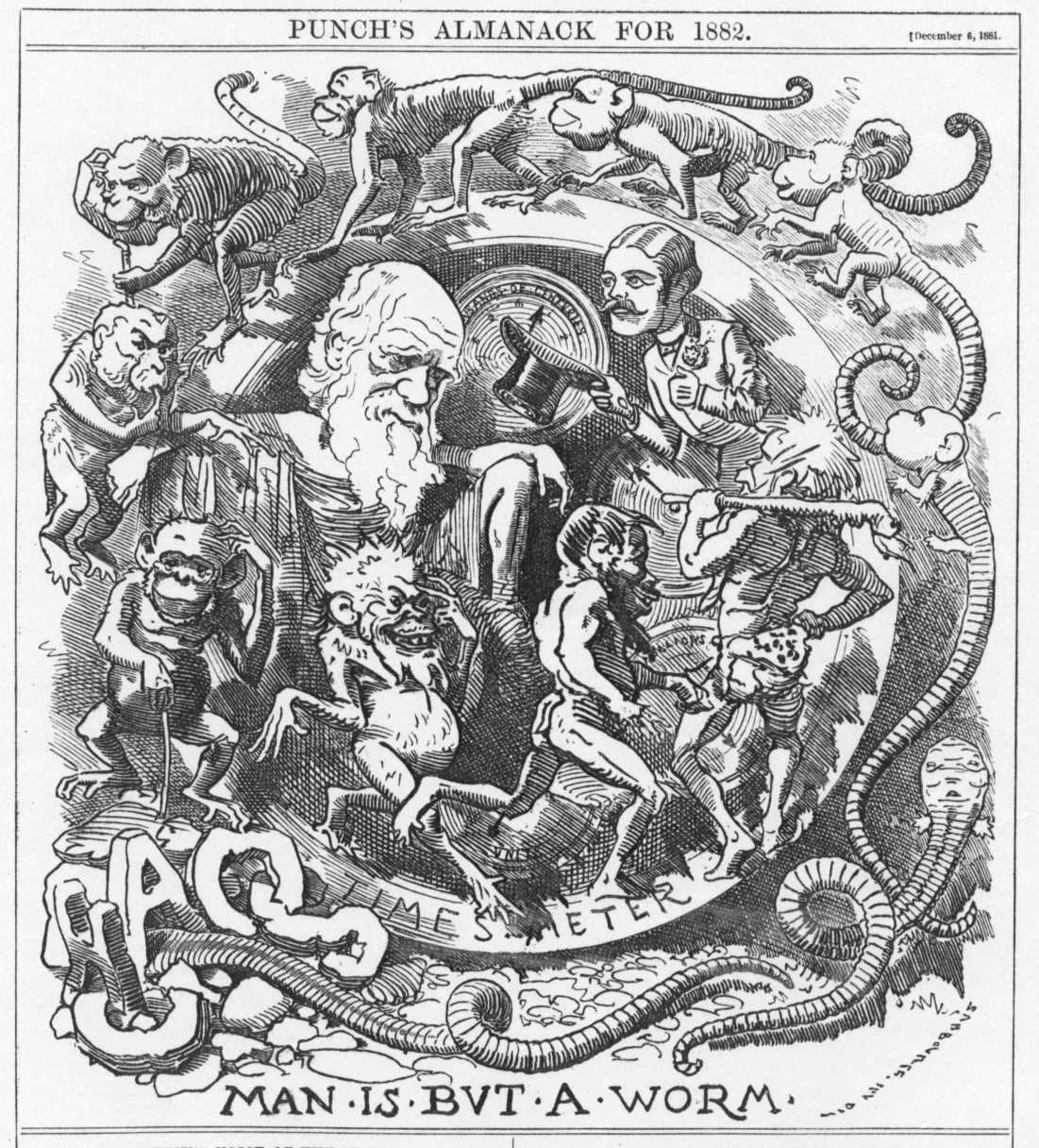evolution
Word Origin & History
1640s, "an opening of what was rolled up," from L. evolutionem "unrolling of a book," noun of action from evolvere (see evolve). Used in various senses in medicine, mathematics, and general use, including "growth to maturity and development of an individual living thing" (1660s). Modern use in biology, of species, first attested 1832 by Scottish geologist Charles Lyell. Charles Darwin used the word only once, in the closing paragraph of "The Origin of Species" (1859), and preferred descent with modification , in part because evolution already had been used in the 18c. homunculus theory of embryological development (first proposed under this name by Bonnet, 1762), in part because it carried a sense of "progress" not found in Darwin's idea. But Victorian belief in progress prevailed (along with brevity), and Herbert Spencer and other biologists popularized evolution . Related: Evolutionary . Online Etymology Dictionary, © 2010 Douglas Harper
Our Living Language :
 Darwin's theory of evolution by natural selection assumed that tiny adaptations occur in organisms constantly over millions of years. Gradually, a new species develops that is distinct from its ancestors. In the 1970s, however, biologists Niles Eldridge and Stephen Jay Gould proposed that evolution by natural selection may not have been such a smooth and consistent process. Based on fossils from around the world that showed the abrupt appearance of new species, Eldridge and Gould suggested that evolution is better described through punctuated equilibrium. That is, for long periods of time species remain virtually unchanged, not even gradually adapting. They are in equilibrium, in balance with the environment. But when confronted with environmental challenges—sudden climate change, for example—organisms adapt quite quickly, perhaps in only a few thousand years. These active periods are punctuations, after which a new equilibrium exists and species remain stable until the next punctuation.
Darwin's theory of evolution by natural selection assumed that tiny adaptations occur in organisms constantly over millions of years. Gradually, a new species develops that is distinct from its ancestors. In the 1970s, however, biologists Niles Eldridge and Stephen Jay Gould proposed that evolution by natural selection may not have been such a smooth and consistent process. Based on fossils from around the world that showed the abrupt appearance of new species, Eldridge and Gould suggested that evolution is better described through punctuated equilibrium. That is, for long periods of time species remain virtually unchanged, not even gradually adapting. They are in equilibrium, in balance with the environment. But when confronted with environmental challenges—sudden climate change, for example—organisms adapt quite quickly, perhaps in only a few thousand years. These active periods are punctuations, after which a new equilibrium exists and species remain stable until the next punctuation. 


No comments:
Post a Comment